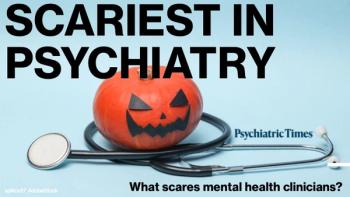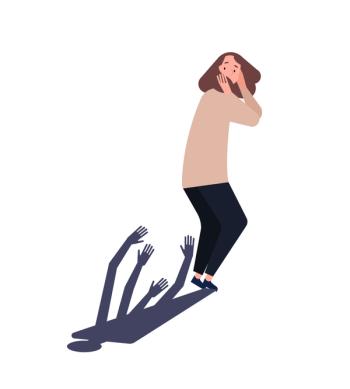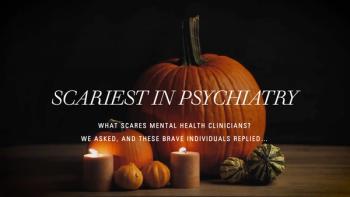
Confusing the Diagnosis for the Person
Missing out on treating a person rather than a diagnosis?
SCARIEST IN PSYCHIATRY
In this series, Scariest in Psychiatry, we asked clinicians about the scariest topic in mental health. What’s frightening, worrisome, or concerning in psychiatry? Here’s how they answered.
Imagine practicing medicine before the advent of antibiotics, vaccines, MRI scanners, and laboratory tests. Actually, relative to the history of human civilization, that was not all that long ago. The 3 most powerful medicines back then were compassion, being fully present for the patient, and listening to what the patient really needed from us. Over the past 100 years, these medicines often have dropped to the bottom of our list of treatments, and much of medicine today involves providing either a prescription or a procedure.
I sadly reminisce to my early years as a psychiatrist when I commonly spent 50 minutes, sometimes weekly, with many patients. The brief appointments lasted only 25 minutes, and often ended feeling unfinished. The first 5 to 10 minutes were spent addressing medication issues, and then the real work would begin. Open ended questions and commenting on a notable change in the patient’s posture or affect as the session progressed opened many unexpected doors, sometimes taking us to what ended up being the most important issue affecting the patient’s presenting symptoms.
Simultaneously, with an exponential growth in our understanding of the human brain and behavior through advances in neuroscience, psychiatry has devolved to primarily a “medication management” model of treating psychiatric disorders. At most outpatient clinics, the expectation is to see a patient every 15 minutes. When you add in the time needed to complete the electronic record, the result is a visit that revolves around prescribing medications. As a psychopharmacologist, medications are an important part of my treatment, but there is so much more to providing good psychiatric care that that has been pruned out of routine visits.
The current brevity of psychiatric visits decreases the likelihood of developing a stronger treatment alliance, which would foster mutual respect and trust, and more likely provide openings for therapeutic moments. The therapeutic moment is rich in possibilities for insights and understanding that, when explored, provide rich opportunities for meaningful self-awareness in our patients. Each patient experiences the world and their place in it due to an infinite array of developmental experiences, genetic influences, epigenetic modifications throughout life, relationships, significantly positive and negative life events, environmental factors, and predispositions. Collectively, these factors have contributed greatly to the reason each patient is in our office.
As our time spent with patients decreases, and the office visit is spent primarily focused on medication-related issues, my concern is that our time is spent treating a diagnosis rather than the complex and unique person in our office.
Dr Miller is Medical Director, Brain Health, Exeter, New Hampshire; Editor in Chief, Psychiatric TimesTM; Staff Psychiatrist, Seacoast Mental Health Center, Exeter; Consulting Psychiatrist, Exeter Hospital, Exeter; Consulting Psychiatrist, Insight Meditation Society, Barre, Massachusetts.
Newsletter
Receive trusted psychiatric news, expert analysis, and clinical insights — subscribe today to support your practice and your patients.







